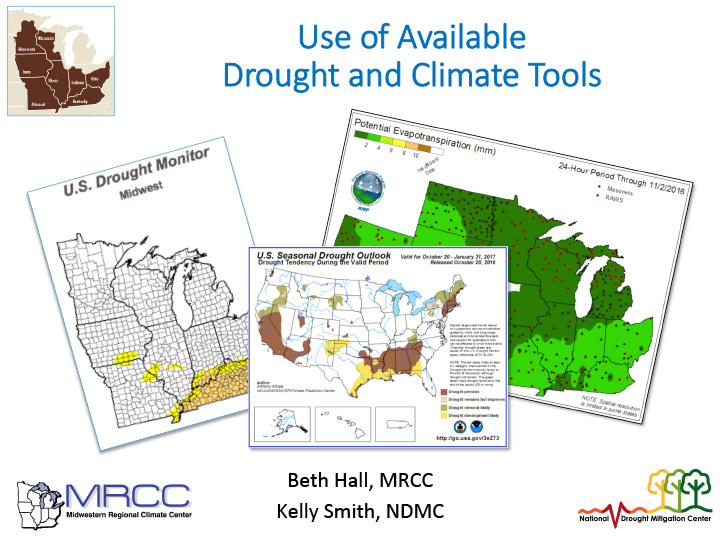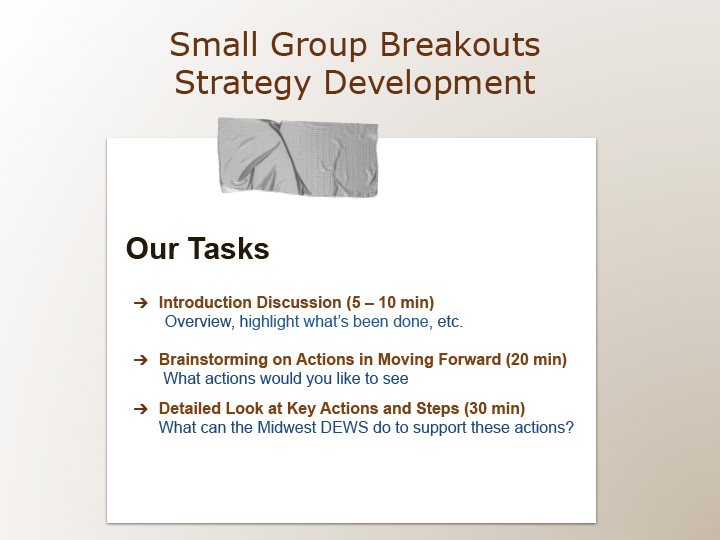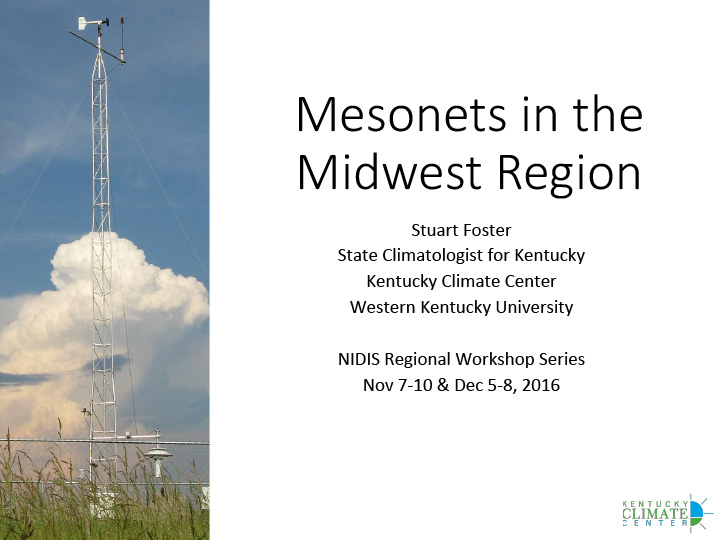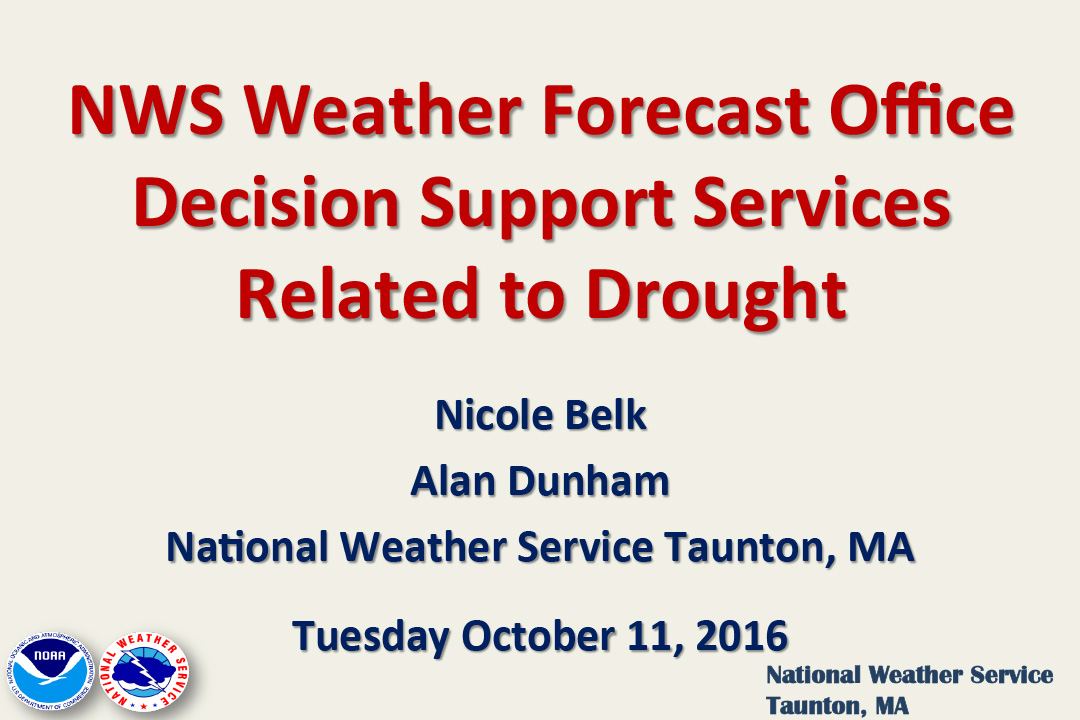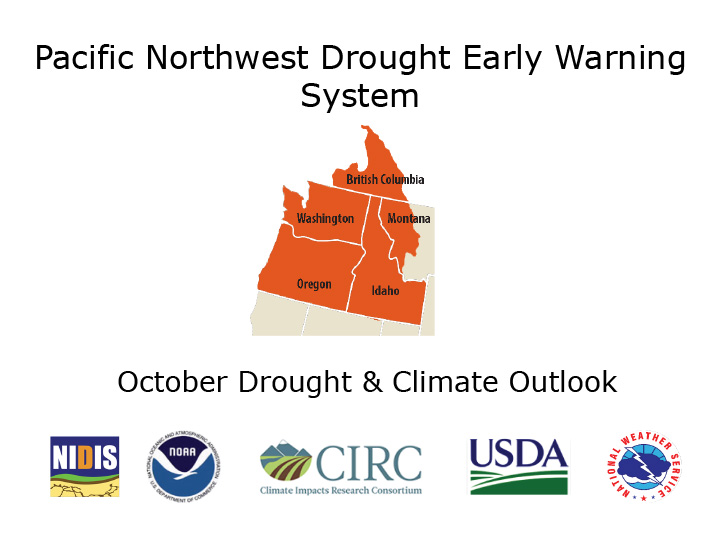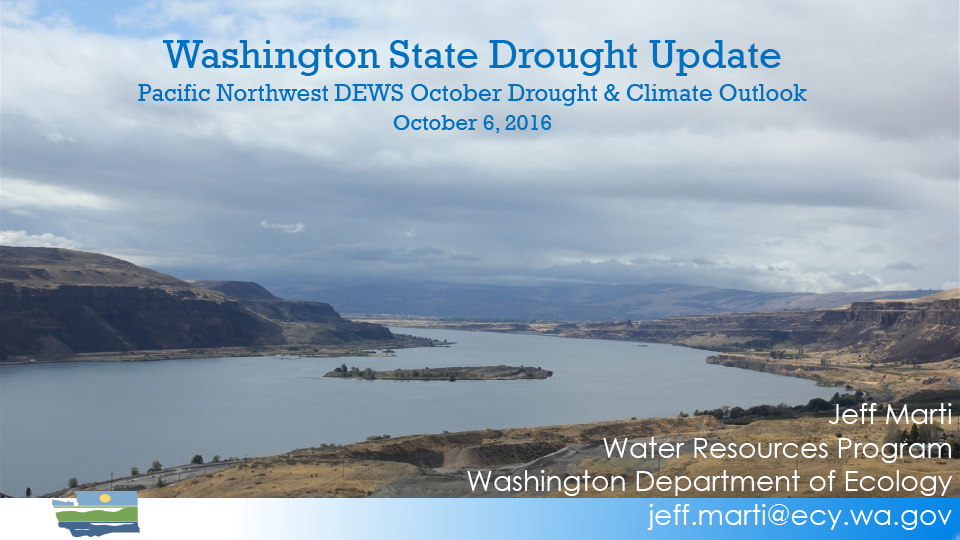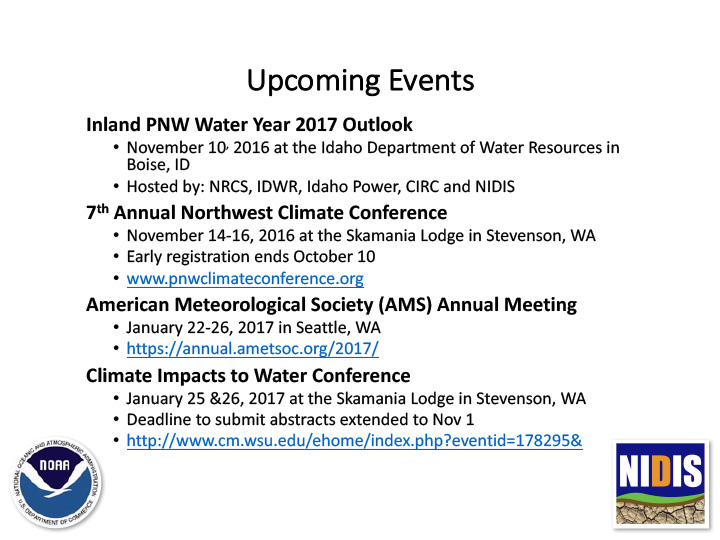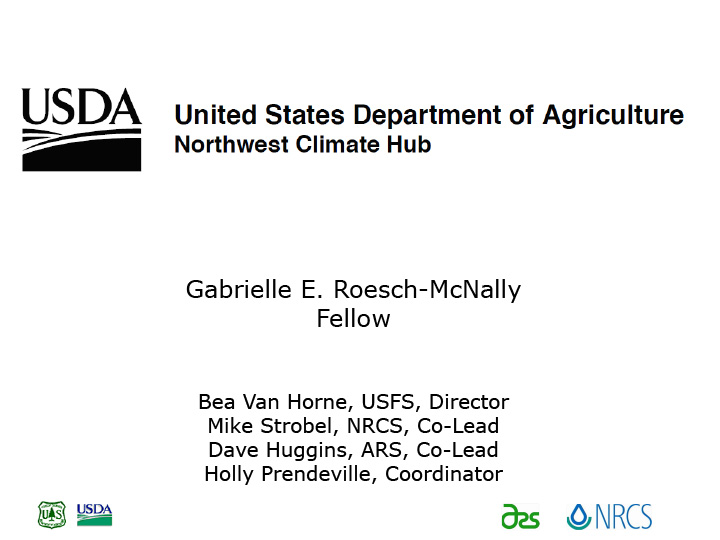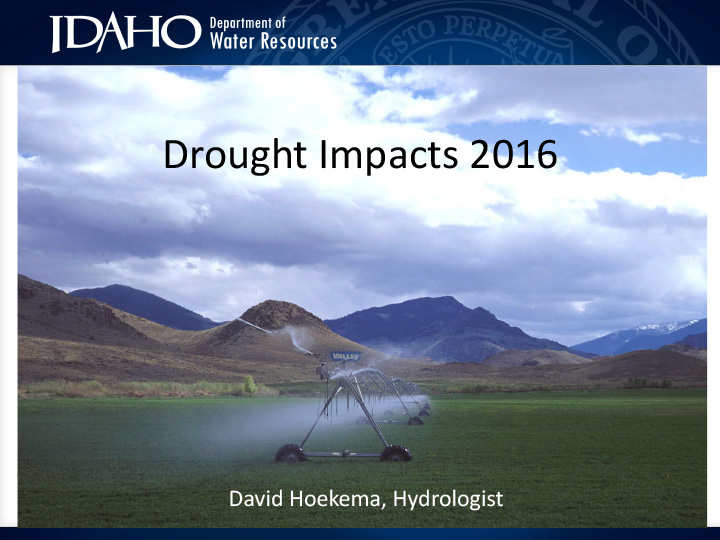Overview of usage (among attendees at Nov. 8, 2016 Midwest DEWS meeting) of current monitoring tools; drought forecast and outlook information; historical drought occurrence, impacts and/or management tools. Usage determined by respondents to survey listing various tools, indicators, indices, websites, etc.
Describes system established to minimize fluctuation along the Mississippi River during flow conditions.
Single slide describes tasks for small group discussion at second day of Midwest assessment meeting.
NWS Offices and Staff
Provide weather and water data and forecasts in support of State Drought Meetings Provide additional interim support at State or local level Offer activities which vary State-to-State, provided as requested/needed by individual StatesIntroduction to webinar with agenda; information about drought early warning, the Pacific Northwest DEWS and NIDIS.
Washington State drought emergency protocols, stream flow and runoff, impacts on water supply, planning strategies.
Autumn 2016 and early 2017 events and Pacific Northwest DEWS contacts.
Defining a USDA Climate Hub, with details of the Northwest Climate Hub; regional climate change impacts to agriculture, contacts, more.
Summary of drought impacts in Idaho for various time scales, including effects on/from snow pack, soil moisture, temperature, precipitation, stream flow, reservoir levels.


